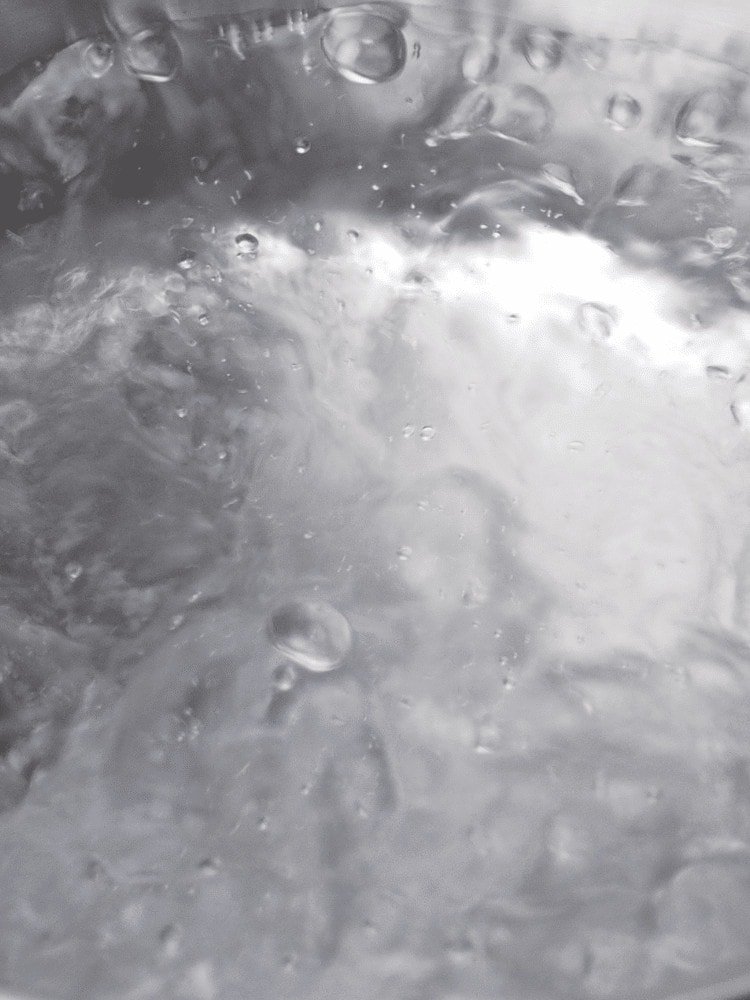The list of myths and old wives’ tales thrown around in the kitchen can be laughable, from screaming lobsters to salting aubergine. But what about freezing water? Is it true that hot water will freeze faster than cold water? Let’s find out!

Does Hot Water Freeze Faster Than Cold Water?
The phenomenon where hot water appears to freeze faster than cold water is known as the Mpemba Effect. However, scientific consensus on this is divided, with some studies supporting it and others debunking it. So, the short answer is it’s still up for debate.
The Myth
You’ve probably heard it at a dinner party or even tried it yourself – the idea that hot water freezes faster than cold water.
It’s one of those weird sayings passed down through generations, like “an apple a day keeps the doctor away” or “don’t go swimming right after eating.” But where did this myth come from, and is there any truth behind it?
Origin of the Myth
The belief that hot water freezes faster than cold water is as old as the hills. It’s been mentioned in ancient texts and has been a topic of discussion from the kitchen table to science classrooms. Even Aristotle can be quoted as saying:
“The fact that the water has previously been warmed contributes to its freezing quickly: for so it cools sooner. Hence many people, when they want to cool water quickly, begin by putting it in the sun.”
Aristotle
Some say it originated from observations made during cold winters, where hot water thrown into the air seemed to freeze before hitting the ground.
Others think it’s just one of those things that “everyone knows” without questioning its validity.
Why People Believe It
The myth persists because it’s counterintuitive. It defies common sense. Why would something hot turn into ice quicker than something already cold?
This oddity makes the myth memorable and more likely to be shared and believed.
Many people swear by it because they’ve “seen it happen.” Maybe they’ve noticed their hot cup of tea freezing faster than a cold glass of water left outside in winter.
The Science
So, you’ve heard the myth, but what does science have to say about it? Is it just an old wives’ tale, or is there some truth lurking behind the claim?
The Mpemba Effect
First things first, meet the Mpemba Effect.
Named after Erasto Mpemba, a Tanzanian student who observed this phenomenon while making ice cream, it’s the term used to describe situations where hot water seems to freeze faster than cold water.
But hold on, before you close this article assuming that it’s a fact, you should know that it’s not universally accepted in the scientific community. Some studies support it, while others don’t.
Why Hot Water May Freeze Faster Than Cold Water
Let’s assume that this is the case and that hot water will freeze a little faster than cold water. Why would this scientifically be the case?
- Evaporation
Hot water can evaporate more quickly, reducing the volume of water that needs to freeze. Less water, quicker freeze. Simple. - Convection
Hot water may induce convection currents, producing a more uniform temperature distribution as it cools. This could potentially speed up the freezing process. - Supercooling
Sometimes, water can go below its freezing point without turning into ice. Hot water is less likely to supercool, meaning it might freeze faster when it does hit 0°C.
So, What Do the Experts Say?
The scientific community is divided.
Some experts argue that the Mpemba Effect is real but not yet fully understood. Others claim that experimental errors or specific conditions might explain the observations. In short, there’s no definitive answer yet, but research is ongoing.
The Experiment
Ever heard the saying, “The proof of the pudding is in the eating”? Well, the proof of this myth is in the freezing. Here’s a simple experiment you can do at home to see if hot water does freeze faster.
What You’ll Need
- Two identical cups or containers
- A freezer
- A timer or stopwatch
- Hot water and cold water
Steps
- Fill One Cup with Hot Water
Not boiling, but hot from the tap. - Fill Another Cup with Cold Water
Straight from the cold tap. - Place Both in the Freezer
Make sure they’re on the same shelf and equidistant from the freezer walls. - Start the Timer
As soon as both cups are in, start your timer. - Check Periodically
Every 30 minutes, open the freezer and see which one is freezing faster. Be quick; you don’t want to affect the experiment by keeping the freezer open too long! - Record the Time
Note down the time it takes for each cup to fully freeze.
What I Found
I ran the experiment and kept a close eye on both cups. Surprisingly, the hot water seemed to freeze faster than the cold water. It took the hot water approximately 3 hours and 45 minutes to fully freeze, while the cold water took around 4 hours and 10 minutes.
The Verdict
So, does hot water freeze faster than cold water? Based on my experiment, hot water seemed to freeze a bit quicker – by about 25 minutes. However, it’s crucial to remember that this was a single test under specific conditions.
Yes or No?
If we’re going strictly by my experiment, then yes, hot water froze faster. But (and it’s a big but) this isn’t conclusive evidence. The scientific community is still divided on the Mpemba Effect, and my test alone can’t settle the debate.
Conditions and Caveats
Our experiment suggests that under certain conditions, hot water might freeze faster. But variables like the type of container, the exact temperatures, and even the freezer’s efficiency could all play a role.
So, take our “yes” with a grain of salt.


